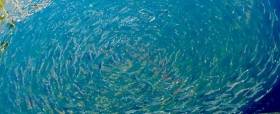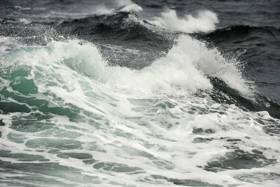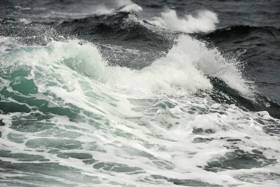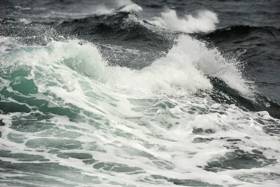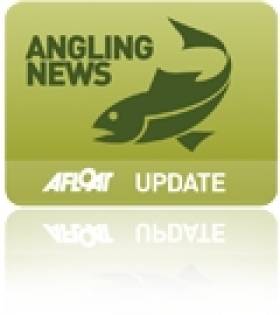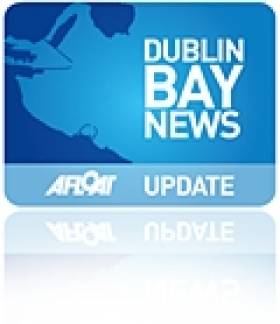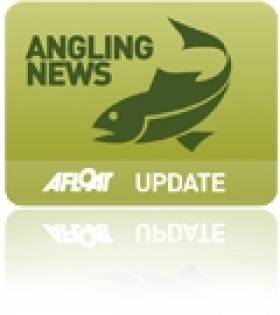Displaying items by tag: consultation
IFI Extends Consultation On Fish Farm Phase-Out
#FishFarm - Inland Fisheries Ireland (IFI) has announced an extension of its public consultation on freshwater trout production.
Intended to facilitate the fullest possible consideration by the Board of IFI of stakeholders' views, the consultation period originally due to close on 19 August has now been extended to 19 September.
Stakeholders are encouraged to make a submission through the consultation process, the findings of which will be comprehensively reviewed and considered by IFI, with a report made to Minister of State Seán Kyne’s department, before any further steps are taken. There will be no disruption to the supply of fish during this process.
Information on the consultation is available on the IFI website or from any IFI office. Submissions should be made in writing on or before 5pm on Monday 19 September to [email protected] or by post to Fish Farm Consultation, Inland Fisheries Ireland, 3044 Lake Drive, Citywest Business Campus, Dublin D24 Y265.
Irish Water Prosecuted Over Midlands River Fish Kill
#FishKill - Inland Fisheries Ireland (IFI) has successfully prosecuted Irish Water over a chemical discharge on 18 August last year that causing a significant fish kill on a tributary of the Tullamore River.
At a sitting of Portlaoise District Court on Friday 15 July, Judge Catherine Staines heard evidence from Michael Fitzsimons, a senior fisheries environmental officer with IFI, that following a pollution report received from Irish Water, IFI carried out a detailed investigation on the Clodiagh River.
Over 3,000 fish mortalities were estimated over a 4km stretch of the river, consisting predominantly of trout along with other species such as salmon, lamprey, minnow and stoneloach.
The fish kill was as a direct result of a chemical discharge from an accident at the Irish Water plant in Clonsalee, Co Laois. Irish Water entered a guilty plea.
Judge Staines directed Irish Water to pay IFI’s legal costs of €5,016 and to cover the full cost of the rehabilitation works to be carried out downstream of the incident area. A development plan will be formulated by IFI in the coming weeks.
The judge did not impose a fine on the basis that it would be the Irish taxpayer paying for the incident. She also instructed Irish Water to carry out a full review of its Waste Water Treatment Plants (WWTP) and provide a report to her by 21st July 2017.
Judge Staines stated that she did not want to see an incident like this happening again.
“This was a serious pollution incident which will take a considerable number of years for the river to recover," said Amanda Mooney, Shannon River Basin District director with IFI.
"I am pleased with the outcome of the case and the provision for vital rehabilitation works to assist fish stocks to recover naturally.”
Judge Staines adjourned the case until 21 July 2017 to allow sufficient time for the rehabilitation works and WWTP review report to be concluded.
In other news, submissions are open for the consultation on plans to phase out fish farming at three of four IFI facilities it currently operates around Ireland.
As previously reported on Afloat.ie, operations in Roscrea, Co Tipperary; Cullion in Mullingar, Co Westmeath and Lough Allua in West Cork are affected by the restructuring plan.
Facilities at Cong in Co Mayo will be retained or research and stocking purposes, but rainbow and brown trout will no longer be farmed for sale.
Submissions should be made in writing before 5pm on Friday 19 August to [email protected] or Fish Farm Consultation, IFI, 3044 Lake Drive, Citywest Business Campus, Dublin D24 Y265.
Public Meeting In Connemara On Galway Bay Marine Test Site
#SeaPower - The Marine Institute will host a third public information meeting on the Galway Bay Marine and Renewable Energy Test Site next Thursday 21 July at 7:30pm in the Connemara Coast Hotel in Furbo, Co Galway.
The meeting is part of the public consultation to ensure full information is provided on the Marine Institute’s foreshore lease application to upgrade test and demonstration facilities at the Galway Bay Marine and Renewable Energy Test Site.
The Marine Institute and the Sustainable Energy Authority of Ireland will provide information on the background to the lease application and the scope of the proposed upgrade and address questions raised by the public ahead of the new deadline for submissions, which is Tuesday 2 August.
As previously reported on Afloat.ie, the application document and relevant maps, plans reports and drawings are available from the Department of the Environment's website, and are also available for viewing in Salthill and Spiddal till the deadline. Information on the consultation is also available in Irish.
Extension To Public Consultation On Galway Bay Test Site
#GalwayBay - The public notice period for the Marine Institute’s foreshore lease application to upgrade the Galway Bay Marine and Renewable Energy Test Site has been extended by two weeks to Friday 1 July 2016.
Following representations to the Foreshore Licensing Unit from locals and the Marine Institute, Planning Minister Simon Coveney decided this week (Wednesday 15 June), as an exceptional matter and in the public interest, to extend the period by which submissions from members of the public for the above application can be submitted by a further 10 working days.
The new extended closing date by which submissions must be made is now close of business on Friday 1 July. Submissions received after this date will not be taken into consideration.
Further information on the application will be made available early next week in order to address queries raised during a well attended public information meeting in Spiddal last Tuesday 14 June.
The Marine Institute applied to the Department of Housing, Planning and Local Government (formerly the Department of the Environment, Community and Local Government) for a foreshore lease for the Galway Bay Marine and Renewable Energy Test site where prototype marine technology can be tested at reduced scale to determine viability in an ocean environment.
Observations are invited on the foreshore lease application which outlines plans to upgrade the existing infrastructure and facilitate the deployment of a wider range of marine renewable energy devices and novel sensor technologies at the Galway Bay Marine and Renewable Energy Test site.
The Galway Bay Marine and Renewable Energy Test Site has been in operation since 2006, when it was established by the Marine Institute and the Sustainable Energy Authority of Ireland. The purpose of the site is to allow technology innovators to test the viability of small scale prototypes in an ocean environment.
A copy of the application and all relevant maps, plans, reports and drawings are available to download from the departmental website. Copies of these documents are also available for viewing at Salthill Garda Station, Salthill, as well as Spiddal Public Library and Comhlacht Forbartha An Spidéal Teo in Spiddal until 5pm on 1 July 2016.
Should you wish to make a submission on the lease applications you should do so in writing no later than 5pm on 1 July 2016 (quoting ref: FS 006566) to the Foreshore Unit, Department of the Environment, Community and Local Government, Newtown Road, Wexford or [email protected].
#GalwayBay - A public information evening will take place in Spiddal this Tuesday 14 June on the Marine Institute’s application to upgrade the Galway Bay Marine and Renewable Energy Test Site.
Speakers from the Marine Institute, SmartBay Ireland and the Sustainable Energy Authority of Ireland (SEAI) will give presentations and be on hand for questions answers at the Park Lodge Hotel in Spiddal from 8.30pm till 10.30pm.
As previously reported on Afloat.ie, the evening is being held as part of the consultation process on the lease application for the marine energy prototyping site, which closes on 17 June.
Angling News: Call For Submissions On Lough Sheelin Bye-Law, More Info For River Feale Season
#Angling - Inland Fisheries Ireland (IFI) is seeking submissions from interested parties in relation to a proposal to introduce a bye-law defining a closed season for angling for any species on Lough Sheelin in the Shannon River Basin District (No 8 District).
The proposal currently under consideration is to seek the Minister of State at the Department of Communications, Energy and Natural Resources to introduce a bye-law on Lough Sheelin to close the lake to angling for any species from 13 October to the end of February in the following year.
IFI may, as part of the process, arrange a public consultation meeting if deemed necessary, but all submissions must be received in writing and will be published on the IFI website.
Submissions may be sent by email to [email protected] or by post to:
The Director,
Inland Fisheries Ireland,
Ashbourne Business Park,
Dock Road,
Limerick
V94 NPEO
The public consultation period will run for another three weeks with the closing date for receipt of submissions set at 5pm on Wednesday 16 March.
In other angling news, the River Feale (including Rivers Galey and Brick) will be open for salmon fishing on from next Tuesday 1 March till midnight of Friday 30 September.
Under the salmon tagging regulations, in 2016 the River Feale is designated as a 'brown tag' fishery. The brown tags for the River Feale bear the code B3.
Anglers must affix a brown tag along with a blue tag to any salmon which is retained. This means that salmon retained on the River Feale will have two tags attached.
Brown tags will issue from IFI officers only for the 2016 season. Please ring 087 763 9236 to arrange to meet and receive your first brown tag, as well as any additional tags needed (upon verification that the previous tag has been used, i.e. a fish has been caught and recorded in the logbook).
Only one brown tag will be issued at a time to each angler. If an angler has used their brown tag or doesn’t have a brown tag in their possession to use then they must fish by catch-and-release methods (single barbless hook and no worms).
Brown tags will continue to be issued until the angling quota is reached. National regulations apply and are available in the Wild Salmon and Sea Trout leaflet.
For any queries refer to the relevant IFI webpage or contact the Limerick office at [email protected] or 061 300 238.
Waterways Draft Heritage Plan Open For Public Consultation
#InlandWaters - Waterways Ireland has completed the development of its Draft Heritage Plan 2016-2020 for Ireland's inland waterways and has opened it up for public consultation until 6 November 2015.
Developed in consultation with a wide range of stakeholders, the plan encompasses the cultural, built and natural heritage of the inland waterway corridors and aims to "identify, conserve and promote the sustainable use of the unique waterways heritage for the enjoyment of this and future generations."
It is focused on connecting people, communities and the wider population with their local waterway and fostering a sense of place
Heritage plan working groups gave generously of their time to develop this strategy, and it is hoped to deliver the plan in partnership with them.
Waterways Ireland says implementation of the plan will require involvement from across all sectors: Government, NGOs, businesses and local communities.
"Only through this co-ordinated approach can the waterways remain strong, vibrant places to live, each with its own local distinctiveness, offering a space for the public to stand and appreciate 'living heritage' in all its forms," said the body for Ireland's waterways.
To participate in the public consultation, first download the draft plan HERE.
Submissions are invited in writing either by post (to Draft Heritage Plan Consultation, Waterways Ireland Western Regional Office, Dock Road, Drewsborough, Scarriff, Co Clare V94 H7N1) or by email to [email protected] by 6 November 2015 and should include the name and address of the person/organisation represented.
Additionally, a series of public information sessions – as previously reported on Afloat.ie – will be held throughout this month and into October, and feedback given at these will be included with the formal submissions.
Waterways Ireland says all written submissions and comments received during the above time period will be considered and the draft plan will be amended accordingly.
IFI Invites Submissions On Eel Stock Management
#Eels - Inland Fisheries Ireland (IFI) invite submissions from interested parties on the following reports:
- Report on the Implementation of Eel Management Plans for Ireland, including the transboundary NWIRBD 2015
- Report from the independent Standing Scientific Committee on Eel 2015
- Report on IFI’s National Eel Monitoring Programme 2012-2014
These reports should be read in conjunction with the original report:
- National Report for Ireland on Eel Stock Recovery Plan - Including River Basin District Eel Management Plans
All the above documents are available for download from the Inland Fisheries Ireland website HERE or on CD-ROM from the address below.
These reports include the latest research and management information on eels in Ireland compiled over the last three years and updates the status of the stocks.
The management policy for eels in Ireland over the next three years will be determined from these reports and any relevant submissions received from interested parties.
Any party wishing to make a comment should send their submission on or before Wednesday 17 June 2015 to [email protected] or by post to:
Eel Submission, Inland Fisheries Ireland, 3044 Lake Drive, Citywest Business Campus, Dublin 24
Public Consultation On Dun Laoghaire Baths Opens Today
#DunLaoghaire - The public consultation on the proposed redevelopment of the old Victorian baths in Dun Laoghaire opened today (Monday 20 April).
As previously reported on Afloat.ie, last month the €2.5 million project was given the green light by the Department of the Environment.
The revised plans will see the baths – last used 20 years ago as the Rainbow Rapids – developed into artists' studios with a gallery and café space.
Among other changes, the old saltwater pool space will be filled in to create a green space between the People's Park and the East Pier.
The public consultation is open for submissions till 5 June 2015. Full details of the plans and all relevant consultation documents are available HERE.
The local 'Save our Seafront' campaign organisation has arranged a public meeting to discusss the new plans for the baths site and the nearby harbour on Thursday, April 30th at 7.30pm in the Kingston hotel.
#IFI - Inland Fisheries Ireland (IFI) has today launched a public consultation in preparation for the development of a new five-year corporate plan.
Interested parties are being invited to submit observations on what should be included in the plan which will run from 2015 to 2020.
IFI was established under the Inland Fisheries Act of 2010, and under Section 41 of the Act it is required to prepare, adopt and submit for approval to the Minister for Communications, Energy and Natural Resources a five-year rolling corporate plan.
IFI’s current corporate plan covers the period 2011 to 2015 and is available on the IFI website HERE.
The principal functions of IFI are set out under Section 7(1) of the Act and these are the protection, management, and conservation of the inland fisheries resource. The general functions of the agency are:
- To promote, support, facilitate, and advise the Minister on the conservation, protection, management, marketing, development and improvement of inland fisheries, including sea angling.
- Develop and advise the minister on policy and national strategies relating to inland fisheries including sea angling and,
- Ensure implementation and delivery of policy and strategies developed under subsection (b) as agreed with the minister.
Observations on what should be included in the new plan can be made to Emma Fortune, IFI Headquarters, 3044 Lake Drive, City West, Dublin 24 or by [email protected].
The deadline for receipt of observations is Friday 10 April 2015.



























